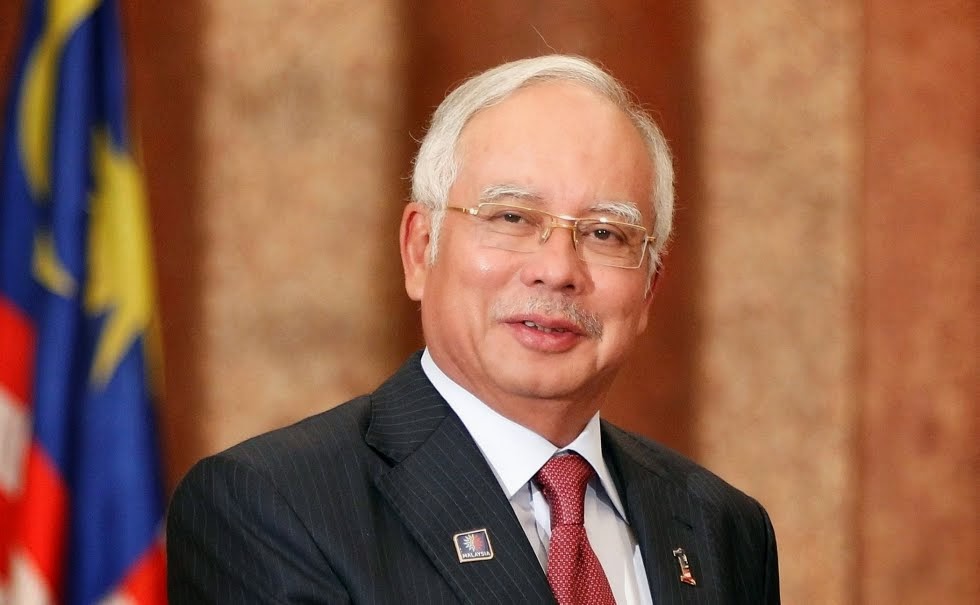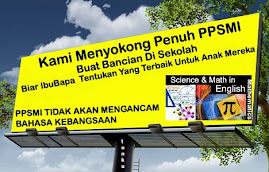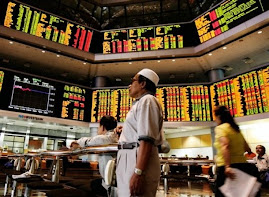The Iron Grip is Loosening
Regardless of whatever baloney pro-DAP media may spin, the heart of the matter is that that the delegates have sent a clear message to voice their discontent with Lim Kit Siang and Lim Guan Eng. Both of them had the BIGGEST drop in votes compared to the previous elections held in December 2012.
Lim Guan Eng tried to brush off the glaringly reduced number of votes that he received in the re-election today by a feeble proposition that it might be caused by a drop in the number of delegates who voted.
Last year during the CEC elections in Penang, there were 1,823 delegates present. This year, only 1,725 delegates voted. The reduction in attendance is only 5.3% whereas Lim Guan Eng’s drop in votes secured in 17.2%, more than three times HIGHER than the drop in attendance!
In December 2012, Lim Guan Eng garnered 1576 votes but yesterday, he only secured 1304 votes – a drop of 272 votes or -17.2%, the highest decline of all twenty candidates.
Lim Kit Siang won 1607 votes in 2012 but only received 1436 votes yesterday – a decline of 171 votes or -10.64% decrease, the second highest drop in votes of all twenty candidates.
The fact that 1, 725 voters chose to vote this way instead of endorsing Lim Kit Siang and Lim Guan Eng via higher votes is indicative of DAP delegates rising to the clarion call that the Lim Dynasty
must end.
must end.
The same pattern persisted for unpopular candidates who have been negatively perceived andthis includes Nga Kor Ming, Tan Kok Wai, and Ngeh Soo Ham.
Name
|
Jan ’13 Results
|
Latest results Sept ‘13
|
Absolute Change
|
%age Change
|
Lim Guan Eng
|
1576
|
1305
|
-272 votes
|
-17.2%
|
Lim Kit Siang
|
1607
|
1436
|
-171 votes
|
-10.64%
|
Nga Kor Ming
|
1075
|
956
|
-119 votes
|
-11.07%
|
Tan Kok Wai
|
1199
|
1088
|
-111 votes
|
-9.26%
|
Ngeh Soo Ham
|
824
|
809
|
-15 votes
|
-1.82%
|
Tony Pua
|
1162
|
1158
|
-4 votes
|
-0.344%
|
Conversely, ALL the other 14 candidates, especially those who are overtly not in the Lim camp (with the exception of Zairil) received dramatic increase in votes. Liew Chin Tong received the highest votes (even more than Lim Kit Siang), Chow Kon Yeow (whom many feel should have been Penang CM but was deprived of that position despite seniority because Lim Guan Eng appointed himself as CM before anyone could say anything), Gobind Singh and Teresa Kok).
Name
|
Jan ’13 Results
|
Latest results Sept ‘13
|
Absolute Change
|
%age Change
|
Liew Chin Tong
|
984
|
1438
|
+454 votes
|
+46.138%
|
Zairil Khir Johari
|
803
|
1132
|
+329 votes
|
+40.971%
|
Chow Kon Yeow
|
986
|
1203
|
+217 votes
|
+22.008%
|
Gobind Singh Deo
|
1197
|
1409
|
+212 votes
|
+17.711%
|
Teresa Kok
|
925
|
1127
|
+202 votes
|
+21.838%
|
In terms of popular vote, it is crystal clear that both father and son have lost the popular vote of the candidates. Just as they lambasted Barisan Nasional for having lost the popular vote in GE 13 and should not rule, both father and son MUST STEP DOWN (in accordance to the same standard they set for BN) and let the new echelon of leadership take over. Failure to do likewise, despite the glaring message sent by 1, 725 voters, is akin to Lim Kit Siang and Lim Guan Eng hanging on for dear life to their party positions in Draconian fashion.
Rightfully, Liew Chin Tong and Zairil Khir Johari should be at the helm of leadership. Lim Kit Siang was Secretary-General of DAP from 1969 to 1999, which is THIRTY years in total. From 1999 till 2004, he was Chairman of the Party and is now Adviser. Having being in the party since 1966, Lim Kit Siang has been serving DAP for FORTY-SEVEN years and must step down now and let new blood take over.
Similarly, Lim Guan Eng has been Secretary-General since 2004 to the present – three terms and should step down.
Evidently, their cry for UBAH! UBAH! UBAH! has backfired on them for truly, DAP delegates want a change in leadership and if Lim Kit Siang and Lim Guan Eng do not step down, they are hypocrites shouting hollow slogans of UBAH – Change when they themselves cannot and will not change!
However, all that change remains a dream for after the CEC election, it’s status quo. The positions assigned do not reflect the type of votes/support each secured.
List of Office-Bearers
Chairman: Karpal Singh (Third term)
Deputy Chair: Tan Kok Wai
Vice-Chair: Chow Kon Yeow, Ariffin Omar, Chong Chieng Jen, M Kula Segaran, Teresa Kok
Sec-Gen: Lim Guan Eng (Third term)
Asst Sec-Gen: Chong Eng, Ngeh Koo Ham, P Ramasamy
Treasurer: Fong Kui Lun
Asst Treasurer: Nga Kor Ming
National Organising Secretary: Loke Siew Fook
Asst Nat Organising Sec: Vincent Wu Him Ven, Thomas Su Keong Siong
National Publicity Secretary: Tony Pua Kiam Wee
Asst Nat Publicity Sec: Teo Nie Ching, Zairil Khir Johari
International Secretary: V Sivakumar
National Political Education Director: Liew Chin Tong
Asst Nat Pol Edu Dir: Dr Boo Cheng Hau
Committee Members: Lim Kit Siang, Dr Tan Seng Giaw, Teng Chang Khim, Leong Ngah Ngah, Jimmy Wong Sze Phin, Edwin Bosi, John Brian Anthony, Gobind Singh
Dr Chen Man Hin reconfirmed as Party Life Advisor
Committees/Bureaus:
Disciplinary Comm: Headed by Tan Kok Wai
Legal Bureau: Headed by Gobind Singh Deo
Pakatan Rakyat Bureau: Headed by Teng Chang Khim
Cultural Bureau: Headed by P Gunasekaran
Labour Bureau: Headed by A. Sivanesan
Election Bureau: Headed by Tan Kok Wai
Dayak Consultative Council: John Brian Anthony
Kadazan Dusun Murut Consultative Council: Edwin Bosi
Guan Eng is serving for his third term as secretary-general and it will be his last because the recently amended constitution bars anybody from holding the post for more than three terms. After this term, we can presume he expects to become party chairman. That be the case, Karpalwill have to make way for him.
However, if you look at the results in the following diagram, we see the increasing popularity and rise of Liew Chin Tong, Zairil, Chow Kon Yeow, Gobind, and Teresa Kok. LGE should make way for new blood to be injected into DAP if he is true to his UBAH maxim.

A burning question remains.
How could DAP afford to hold the meeting at One World Hotel? Why the extravagance splashing money this way and then begging people for funds for the Ubah Sarawak campaign? It is senseless. If someone sponsored, who? Why? Reveal if they are true to their CAT principle. This extravagance is akin to MCA holding elections at Mandarin Oriental Hotel instead ofWisma MCA and UMNO holding their elections in Palace of Golden Horses instead of PWTC. For one of the Gerakan AGMs, eight delegates were assigned to one room in a cheap hotel around KL and ate packed meals. Why condemn the government for spending when they themselves are not practicing what they preach?
If they are so confident in securing the same committee, there is no necessity to lure delegates with a venue that has glam and glitz. Even so, note the drop in attendance!
Malaysians, the awakening should have dawned on you! Wake up! DAP aka Daddy-Anak Party
have shown us their true colours and the delegates have spoken. However, are the DAP warlords listening?
Just as the DAP warlords IGNORED the voice of DAP delegates by reinforcing their own position, they will subtly ignore the needs and concerns of Malaysians to further their selfish motives and agenda.
Do not be fools to be hoodwinked by empty promises. It is a case of Talk Cock by the Tokong with nothing to show in substance. Dispose of the misconception that DAP is doing well in Penang. It is NOT. More negative changes are in store for Penang…time will show who is the chameleon masquerading as a people-centric government.
Those burning embers will implode DAP one day. For all our sakes, let us hope it will be soon!
Major Huan Cheng Guan (K)
















 Malaysian Ringgit Converter
Malaysian Ringgit Converter






















